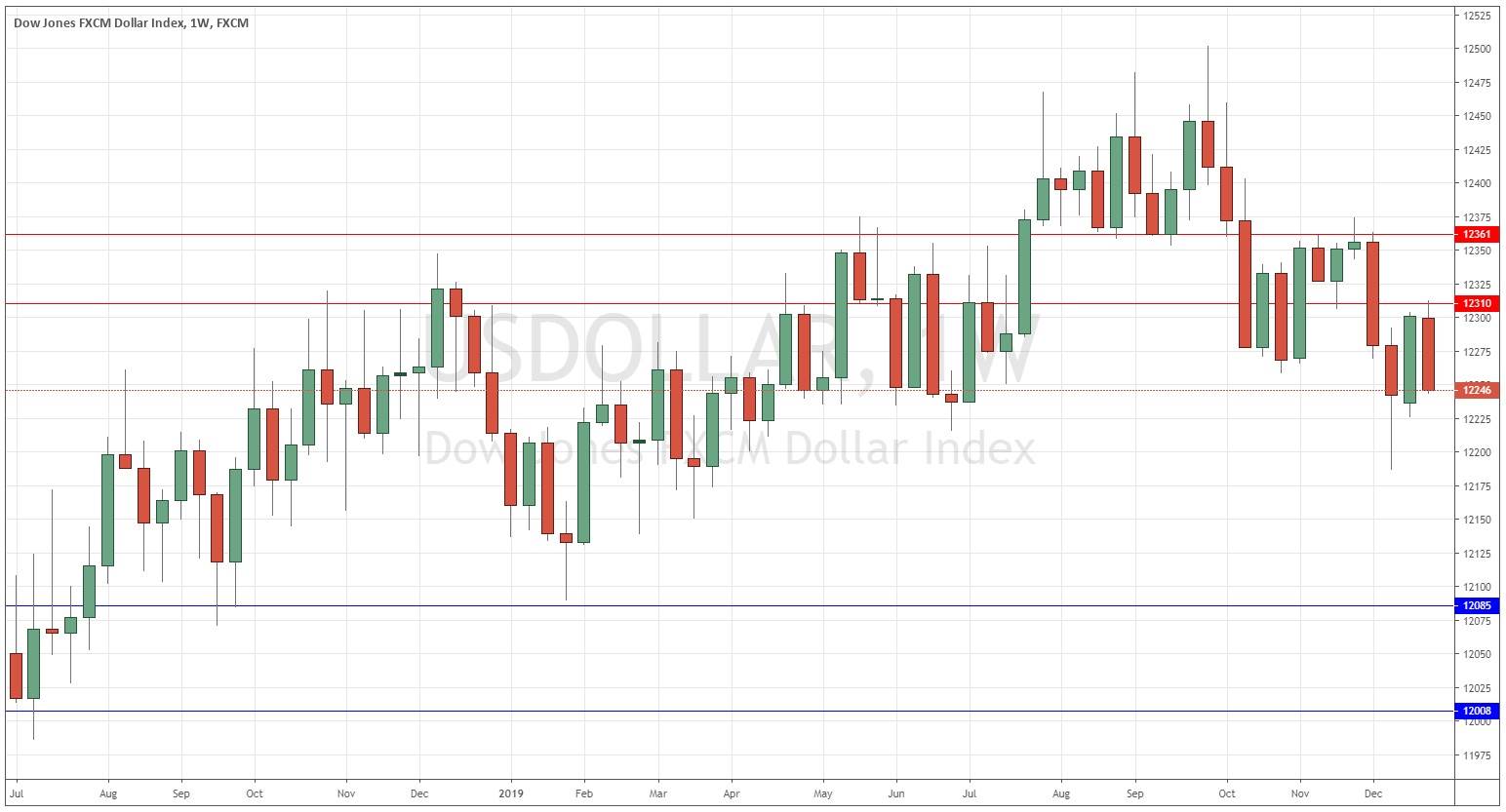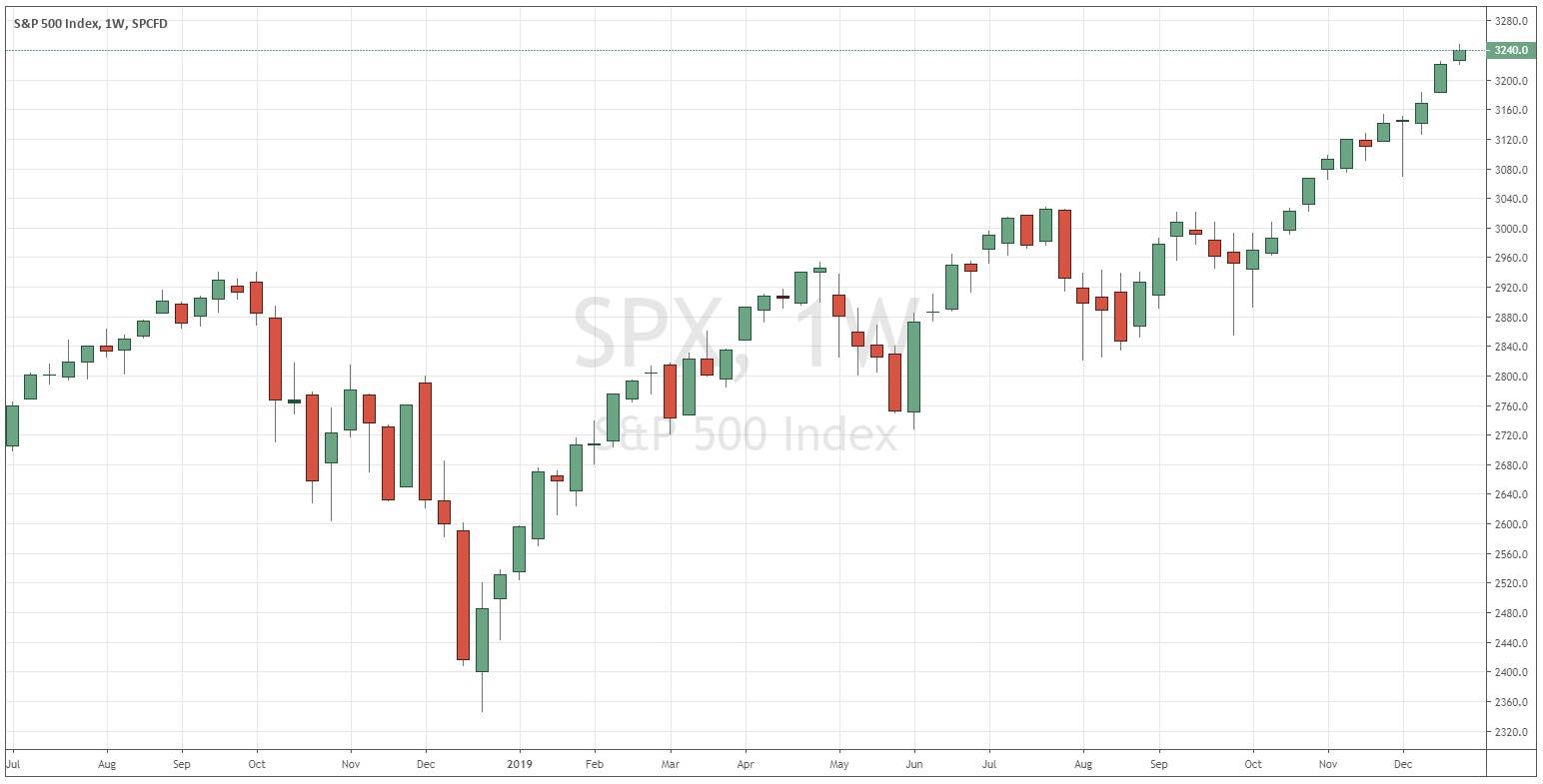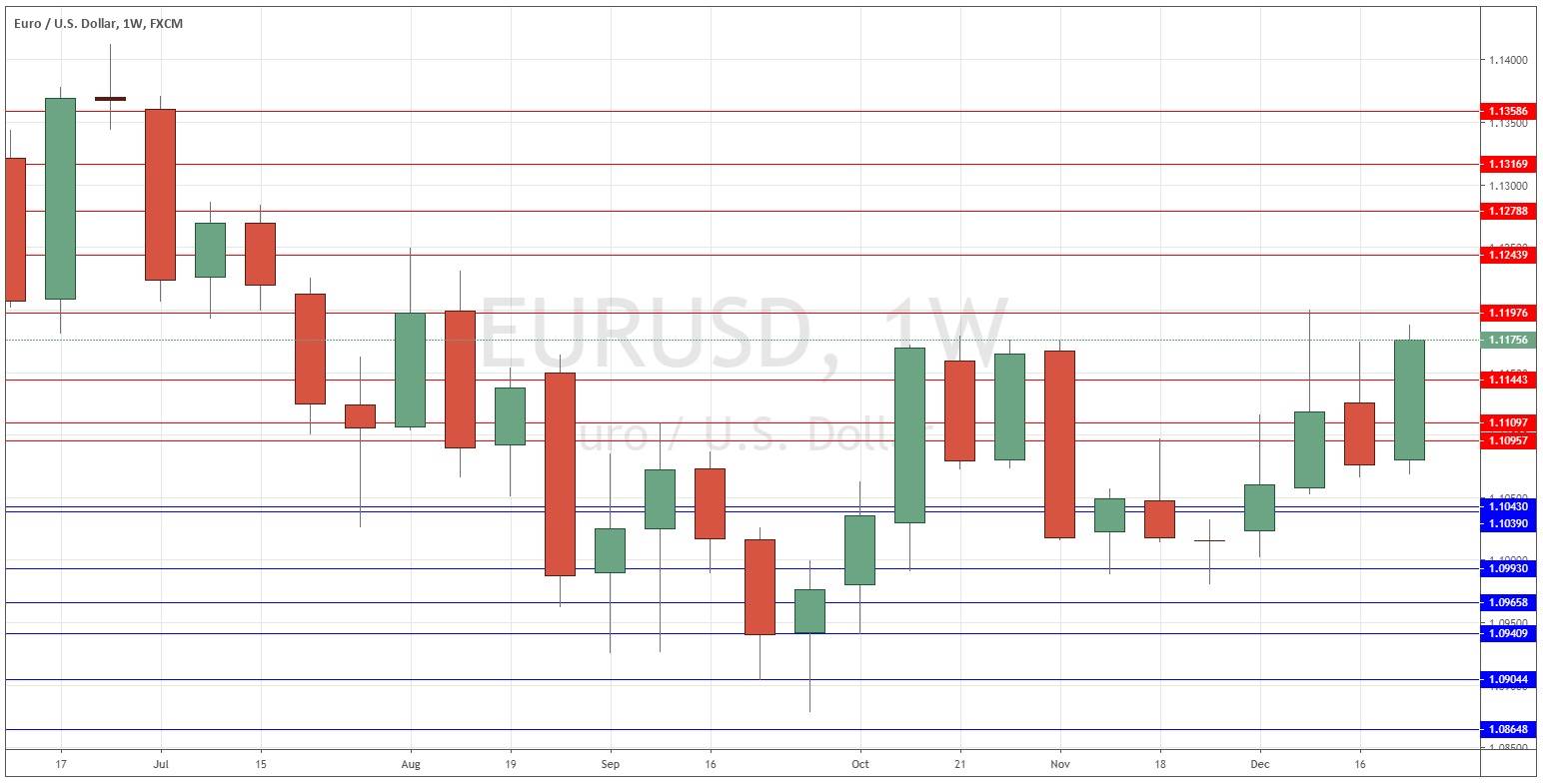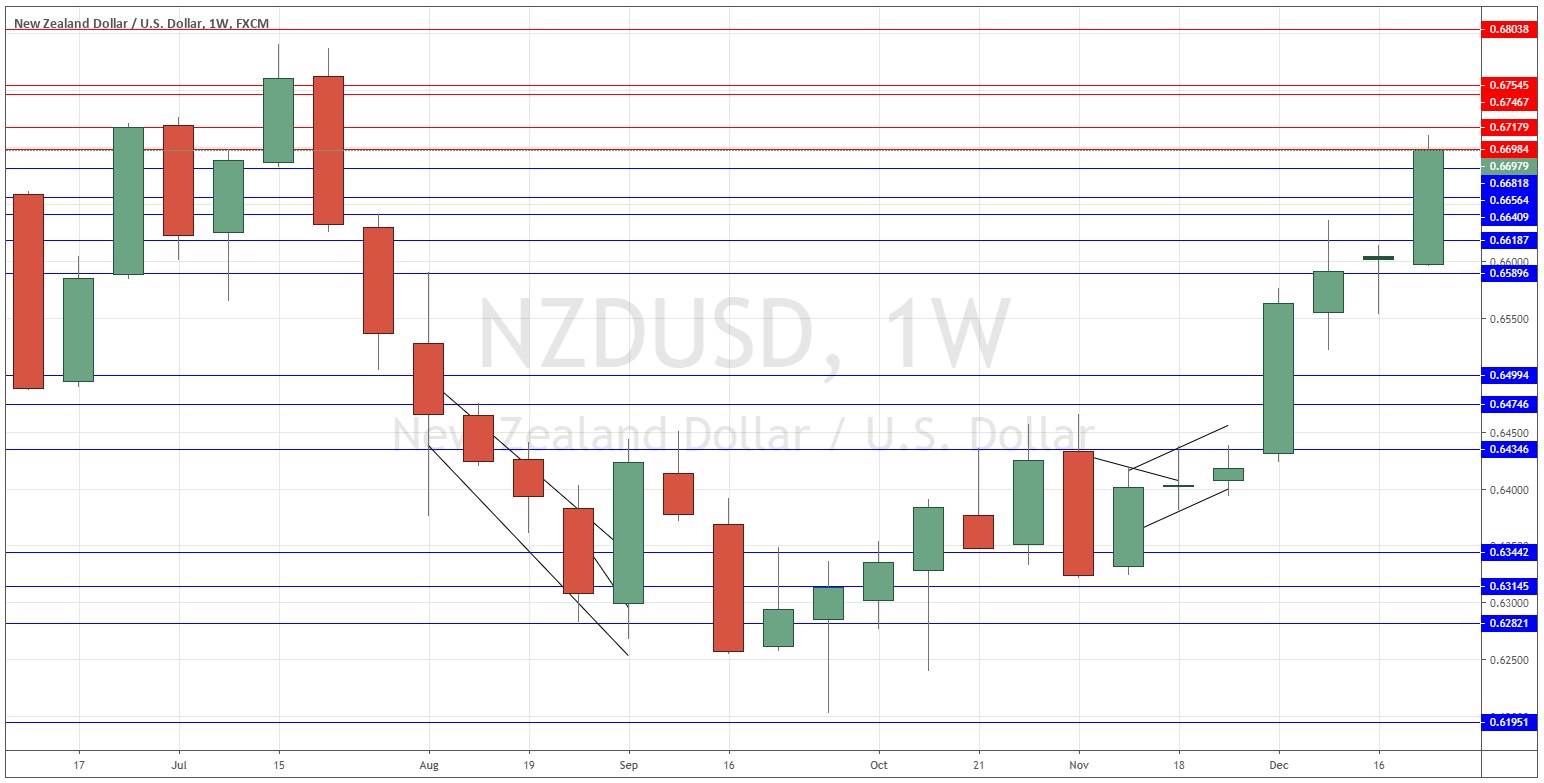The difference between success and failure in Forex trading is very likely to depend upon which currency pairs you choose to trade each week, and not on the exact trading methods you might use to determine trade entries and exits. Each week I am going to analyze fundamentals, sentiment and technical positions in order to determine which currency pairs are most likely to produce the easiest and most profitable trading opportunities over the next week. In some cases, it will be trading the trend. In other cases, it will be trading support and resistance levels during more ranging markets.
Big Picture 29th December 2019
In my previous piece last week, I forecasted that the best trades were likely to be long of the S&P 500 Index following a daily (New York) close above 3222 and long of the NZD/JPY currency cross following a daily (New York) close of the USD/JPY currency pair above 110.00. This was a good call as the S&P 500 Index closed at 3224 on Tuesday and then rose by 0.50% to end the week at 3240. Unfortunately, the USD/JPY currency pair never closed above 110.00, as the NZD/JPY currency cross also rose over last week.
Last week’s Forex market saw the strongest rise in the relative value of the New Zealand Dollar, and the strongest fall in the relative value of the U.S. Dollar.
Fundamental Analysis & Market Sentiment
Fundamental analysts are leaning in favor of the view that the recent quarter-point cut in the U.S. interest rate will be the last cut for a while, with Jerome Powell recently signaling there are likely to be no further cuts and maintaining an upbeat take on the U.S. economy. However, recent retail sales data was disappointing, suggesting weaker consumer demand.
The U.S. economy is still growing, but there are some fears of a pending recession. A major issue concerning sentiment on the U.S. and global economies is the trade dispute between the U.S. and China, although the situation has improved here as it seems that “Phase One” of a U.S. / China trade deal is about to be signed. The benchmark U.S. stock index, the S&P 500, again ended the week at an all-time weekly closing high price.
There are several few long-term trends in the Forex market, notably bullish trends in all the major currencies except the U.S. Dollar and the Japanese Yen, with both trending weaker, especially and most notably the U.S. Dollar.
Technical Analysis
U.S. Dollar Index
The weekly price chart below shows last week printed a bearish piercing candlestick, which closed very near the bottom of its price range. The price is below its level from 3 months ago but still just a little way above its level from 6 months ago, which is bearish but mixed. The price is still below the key resistance level at 12361 and has printed a new lower resistance level at 12310. We have mostly bearish signs here, suggesting that next week’s action is likely to be bearish on the U.S. Dollar.
S&P 500 Index
The weekly price chart below shows that last week printed a bullish candlestick, which closed near its high and above all its weekly closing prices of all time. These are bullish signs, suggesting that the price is likely to rise further over the coming week.
EUR/USD
The price of this major currency pair made its highest weekly close in almost 5 months at the end of last week. Friday’s candlestick was strongly bullish on volatility about twice as high as the average level, which tends to be a very bullish sign. There is still resistance until 1.1200, but the price seems poised to make a major, long-term bullish breakout here.
NZD/USD
The price of this currency pair made its highest weekly close in 5 months at the end of last week. The price has just broken above several key resistance level and has very strong short and medium-term bullish momentum which looks likely to continue into this next week.
Conclusion
This week I forecast the best trades are likely to be long of the S&P 500 Index following a daily (New York) close above 3240, and long of the EUR/USD and NZD/USD currency pairs.




